Every sane person is afraid of death and everything connected with it. Meeting with a funeral ceremony always evokes horror and a depressed state. This is not surprising. The feeling of preserving life is laid in a person from childhood and accompanies him throughout the entire time. However, people with strong character traits are not exposed to severe symptoms of fear of death, and weak-tempered and easily-perceived individuals can fall into panic states.
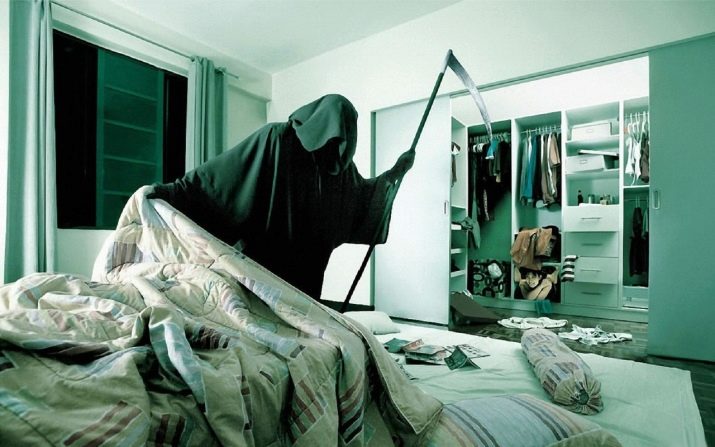
What is necrophobia?
This disease is considered mystical, and people try not to notice those who are so much afraid of the dead. This disease goes hand in hand with a disorder called thanatophobia (fear of death). Such disorders appear when the individual sees real pictures depicting the dead.
For ordinary people, the thought that everyone will someday die does not cause special emotions, since this inevitability will happen to everyone sooner or later. Therefore, a sane person does not fix his attention on such issues. And this is a defensive reaction. You need to live here and now, and what will happen next - only God knows.
An individual who suffers from thanatophobia, tries not to visit the cemetery, and the word "morgue" terrifies him. Films where murders and funerals take place cause him long anguish, and fatal accidents can provoke a severe attack. A person who suffers from this phobia does not work where you can meet with deaths. Such professions as a doctor, a policeman, a military man, a fireman, a rescuer are alien to him. In some people, necrophobia acquires obsessive thoughts, they begin to prepare in advance for death and imagine themselves dead.
These disorders inevitably lead to the fact that a person becomes uninteresting in life. As a result, he can either get very sick or die. Therefore, urgent measures must be taken to cure him.
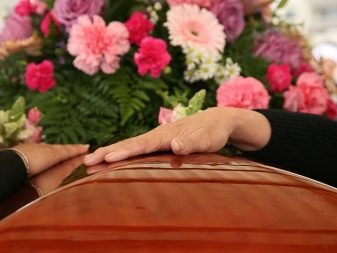
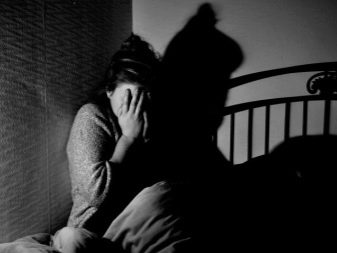
Why arises?
There can be many reasons. Usually all phobias come from our childhood. In adolescence, a person may experience very severe stress or fear due to the death of a close relative. Children are very susceptible to various frightening situations, and when any unpleasant event occurs, it will always remain in memory. Later, when this same person becomes an adult, the fears inherent in childhood may return.
Of course, if this character has a wonderful and interesting life, filled with bright and cheerful events, then he does not fear any phobia. But most often it happens that a person gets into an unpleasant story that provokes severe stress. Nerve overloads heat up the excited consciousness, and, as a rule, a phobic disorder occurs. It can arise from strong mental and emotional stress.
Whenever a person is subjected to various misfortunes, the subsequent anxiety state awaits her.
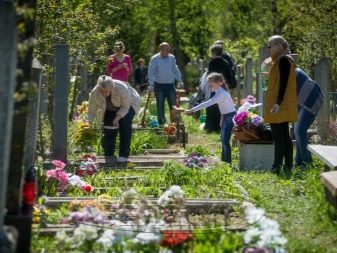
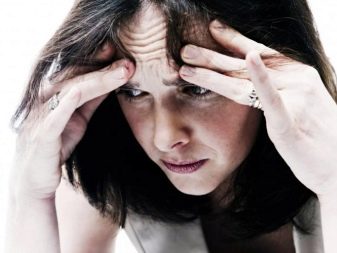
It is human nature to be afraid of what he does not understand. Death is a condition that a person is afraid to experience. And this natural fear is characteristic of absolutely all the inhabitants of the planet. A phobia can occur due to some negative emotions.
- When a person looks at a corpse, his appearance is unpleasant to him. And if the death was violent, or the individual died after a long illness, then the appearance of the deceased will certainly cause a depressed mood. A very impressionable person can go in cycles at this stage, and the consequences will be very deplorable.
- Oppression of the emotional system always causes phobia. When a living person looks at a dead man, he becomes scared that he will never see him alive again. With this person who walked yesterday, talked, talked, never again and no one could meet in reality. These thoughts are terrifying, and consciousness may not withstand such a strong overload.
- There are people who believe in paranormal. They are afraid that the spirit of the deceased will visit them at night and scare them. And if a person begins to convince himself that ghosts actually exist, then he can fall into the most difficult phobia, which will be accompanied by frequent panic attacks.
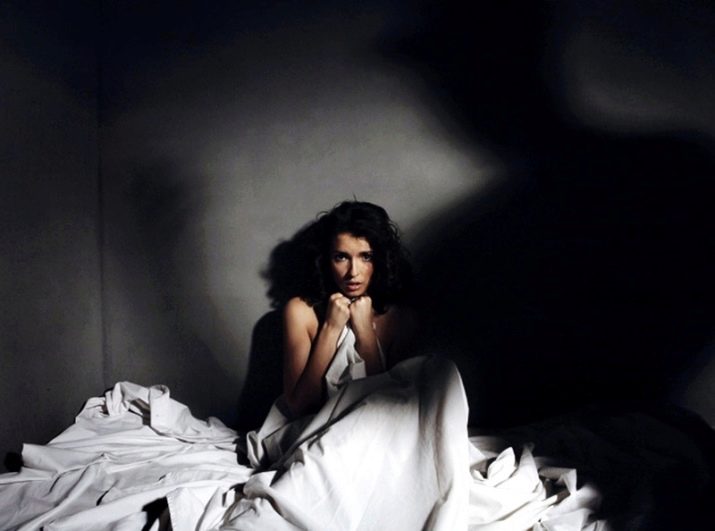
Symptoms
It all depends on temperament. If this is a strong-willed and strong personality, then no phobias are afraid of her. Fear can appear for a short time in the form of a natural emotional process, and then disappear.
Another category of people who take all events seriously may experience mild anxiety after attending a funeral. Perhaps it will be caused by the fact that the deceased was a close relative. Our consciousness is structured so that as an unpleasant event moves away, it begins to gradually erase the details. And this is protection against negative consequences. After some time, an individual with a healthy psyche will gradually forget grief and continue to live on.
Another thing is when a person has a tendency to exaggeration and anxiety. Obsessive states accompany him throughout his life. They either subside or renew with renewed vigor. Such persons should not attend a funeral. After severe emotional overload, they can become sick, and the phobic state will become stable. Against this background, certain symptoms develop.
- There are frequent cases when a person loses a sense of reality. A detached state should cause caution on the part of loved ones.
- Headaches and dizziness, which may be accompanied by nausea and vomiting.
- During panic attacks, an individual can feel very unpleasant symptoms: sweating (in some cases only palms), shortness of breath, rapid heartbeat, tremor of the extremities, confusion of thoughts, loss of self-control, desire to escape, pale skin, fainting may occur.
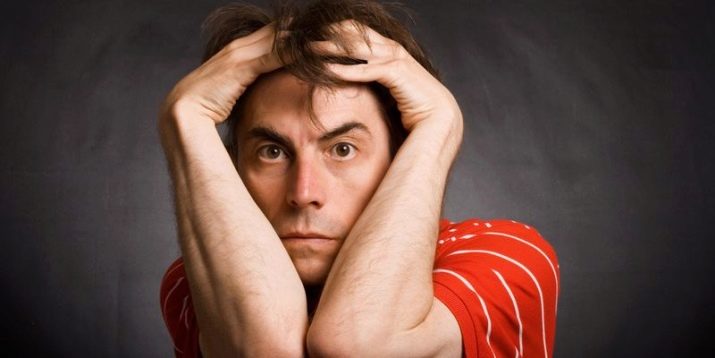
If such symptoms recur more and more often, it is necessary to take measures and consult a doctor. Timely treatment helps to avoid a number of negative consequences and significantly reduces the rehabilitation period.
How to overcome?
Best of all, when a person picks up his emotions and cope with the fear of corpses. People who have a persistent character will be able to overcome an obsessive state without the help of a specialist. However, one must remember that self-medication is fraught with negative consequences.
It is best to help a specialist to get out of anxiety and eliminate phobia. His competent actions can lead to overcoming the disease and fear. First, the therapist will identify the cause of necrophobia, and then choose an effective method and offer you.
- Psychotherapy sessions or so-called cognitive-behavioral therapy. You will learn to relax and change the stereotypes of thinking. Sessions will take place in a relaxed atmosphere. And then everything will depend on the patient, who should show a desire to be treated and follow all the recommendations.
- Physiotherapy - This is a treatment using natural sources such as water, current, wave radiation. Water procedures help tune the body in the right way. Massage of various kinds stimulates the nervous system so that it comes to complete rest.
- Drug treatment will help in severe cases. Despite this, you need to know that such therapy can bring both benefits and harm to your body. Antidepressants and tranquilizers will make your consciousness controlled by you. Pills will quickly relieve anxiety and panic attacks.

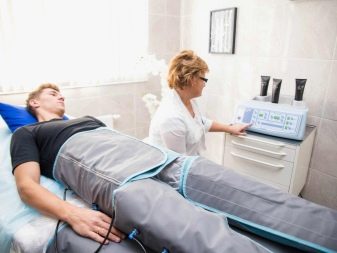
Perhaps your fears have no basis. You just wind yourself up. Therefore, first you need to use the advice of a psychologist. Psychologists rarely resort to extreme measures. They give general recommendations that are simple but have great potential.
- The first tip is to pull yourself together and try to focus on your feelings.
- A healthy lifestyle will help get rid of obsessive conditions.
- Jogging in the morning will give an incentive to a good mood. The sun is shining on the street, and everyone around is enjoying life. Why should you think about death when it is still so far away?
- Get enough sleep, and your mood will always be good.
- Try to avoid various stressful situations, at least during treatment.
- Proper nutrition and delicious food can work wonders.
- Physiotherapy can be replaced by a shower or a warm relaxing bath. Aromatherapy will complement pleasant moments.
- Find a hobby for you. Join a circle where you will meet many like-minded people. Perhaps a change in environment will have a beneficial effect on your well-being.
- Perform breathing exercises when fear is trying to envelop your consciousness. To do this, take a slow breath, hold the air, count to 5 and exhale it slowly. Do these exercises until you feel relief.
- Hypnosis sessions will also help. The specialist introduces a person into a trance and inspires him with the correct reaction to various events.
- Autotraining also helps get rid of phobias.













